The Texas Chainsaw Massacre movies, ranked
- Oops!Something went wrong.Please try again later.
- Oops!Something went wrong.Please try again later.
- Oops!Something went wrong.Please try again later.
In October of 1974, The Texas Chain Saw Massacre birthed Leatherface, arguably the granddaddy of all celluloid slashers, and radically altered the landscape of horror cinema forevermore. Filmed in the summer of 1973 and photographed with a documentary realism in muddy, sun-bleached tones that cause the film to positively sizzle with implied heat, Tobe Hooper's nightmarish astonishment went on to gross $30 million in the United States, on a budget of under $100,000. It went on to become one of the top 20 grossing films of '74, besting both Death Wish and Chinatown.
After the release of Chain Saw, the slasher sub-genre began chugging along in earnest. Just two months after Hooper's Massacre hit screens, Bob Clark's Black Christmas (in which the phone calls are coming from inside the sorority house) debuted, followed in short order by John Carpenter's Halloween (1978) and Fred Walton's Black Christmas-aping When a Stranger Calls (1979).
Leatherface, meanwhile, lay dormant for over a decade, until 1986 when Hooper flipped the script of his original film to direct the dark comedy-driven The Texas Chainsaw Massacre Part 2. The film, for better or worse, opened the floodgates for Chainsaw prequels and sequels over the next several decades. Much like the influence Hooper's original had on a burgeoning sub-genre, the $100 million-plus gross of 2003's reimagining helped to secure the renaissance of '70s and '80s horror titles that were reworked over the next decade—among them, Simon West's remake of Stranger Calls and Rob Zombie's Halloween series, which was an extended homage to the high-pitched insanity of the original TCM.
In February 2022, Netflix premiered the simply-titled Texas Chainsaw Massacre, which found Leatherface (now in his seventies, by our count) exhibiting no signs of slowing down his slaughter. Presumably, as long as there is fuel for his chainsaw, the hulking, human skin-masked villain will remain in business. Below, we've ranked each of the Texas Chainsaw installments, from Hooper's original through the increasingly complicated canon of sequels, prequels, spin-offs, and remakes.
9. <i>Leatherface</i> (2017)
As a child, Jedidiah Sawyer (Sam Strike) was taken from his murderous family and placed in a home for wayward children, where he was renamed to further distance himself from his troubled past. Ten years later, now living as Jackson, the young man finds himself on the run after escaping the institution along with a gang of psychotic inmates who execute a killing spree on their journey home.
Absolutely exhausting, boring drivel. It's hard to imagine any fan of Texas Chainsaw, or anyone that thought they were going to get a chainsaw-adjacent flick, being satisfied with this. Not until the final five minutes does the eponymous hardware enthusiast acquire his signature weapon; before that, we are treated to 80 minutes of miserable, though markedly chainsaw-free, bloodletting that seems more indebted to the worst instincts of one Mr. Robert Zombie than it does anything Tobe Hooper ever worked on.
Directed by Julien Maury and Alexandre Bustillo, the French filmmakers who made an indelible impact on their country's extreme horror movement with the equally vicious, but far more entertaining Inside (2007), this saturnine origin story has suspense confused with outright unpleasantness. Nowhere in the film is there a momentary thrill, nor any frisson of fear. There is only a pervasive sense of disgust. Nurses have their tongues sliced out, young women have their faces obliterated by shotgun blasts, and a variety of very sharp implements are stuck into necks, eyes, and ears with alarming frequency. Why we should care about any of this — why any of it matters, particularly in the overall lore of the man about whom this film was ostensibly created — is never made clear. Perhaps, we are not supposed to care at all? How very French.
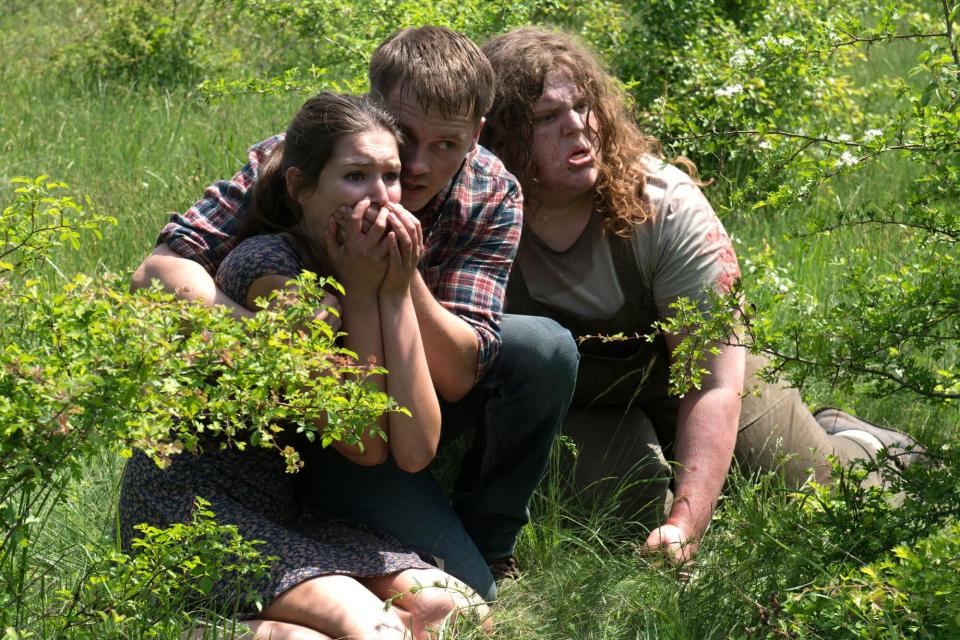
8. <i>Texas Chainsaw Massacre</i> (2022)
The plot description provided by Netflix for Texas Chainsaw Massacre reads thusly: "This 2022 sequel to the 1974 horror cult classic features Jacob Latimore and Elsie Fisher." That's it! Nothing about the plot, the characters, or even Leatherface (Mark Burnham) himself. Presumably, no one at the distribution company could be bothered to watch this nonsense, for which we begrudge them not a whit. For the sake of context, not any allegiance to the film, we elaborate: David Blue Garcia's inane sequel follows a group of influencers to a ghost town in Texas (though the film was actually shot in Bulgaria), where they disrupt Leatherface's hideout and meet well-deserved ends all around.
Netflix bought this celluloid skin-tag from Legendary after disastrous test screenings made it clear that the best thing to do was bury Chainsaw with an anonymous streaming premiere and, apparently, a logline that wouldn't even allude to the unintentional horrors contained within. Amongst a litany of offenses committed over the course of its (blessedly curtailed) 70-odd minutes, Texas Chainsaw culminates, in the words of EW's Joshua Rothkopf, with an "inexcusable last-act development — the survivor of a school shooting picking up a rifle." Indeed, that turn is as awe-inspiringly tasteless as anything that's ever been puked onto a screen.
The creatives make the equally egregious choice to reprise the character of Sally Hardesty, the survivor of the original, here played by the always worthwhile Irish actor Olwen Fouéré, stepping in for Marilyn Burns after the latter's death in 2014. It's actively humiliating to watch the filmmakers so blatantly rip off Laurie Strode's characterization from 2018's Halloween. Apparently, both women are single-handedly maintaining local production of denim jumpsuits, thin gray wigs and shooting-range mannequins.
Most of this putrid feature is, honestly, an inexcusably long walk to a lame joke about a self-driving car. The film ends with featured actor Elsie Fisher (Oscar-worthy in Bo Burnham's Eighth Grade) popping out of the sunroof to her self-piloted auto and lamely screaming, "No! No, oh god, no!!", presumably having seen the offers for other projects that were summarily rescinded after Hollywood caught wind of her involvement in this.
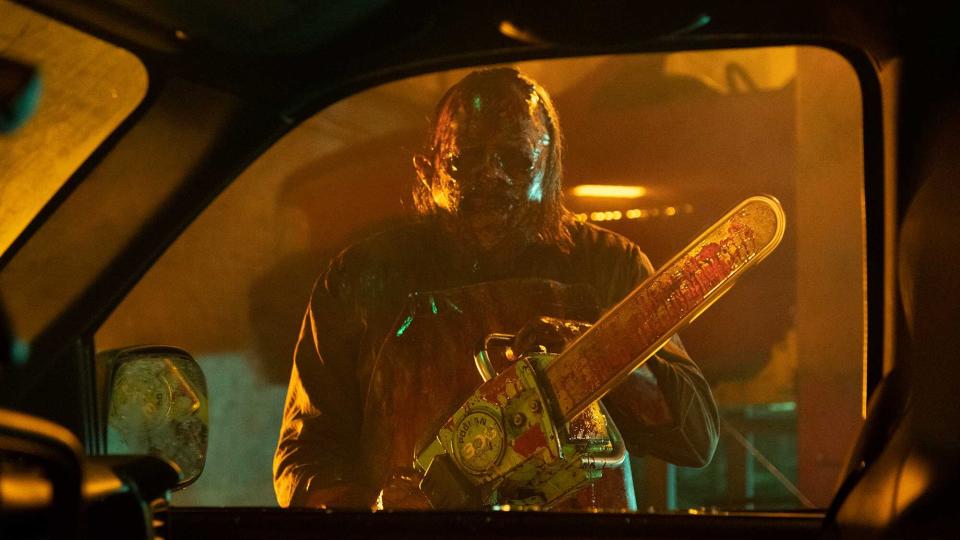
7. <i>Texas Chainsaw 3D</i> (2013)
Upon discovering that she's adopted, and that her biological grandmother (Marilyn Burns, in a thankless and confusing cameo, as she also appears as Sally Hardesty in archival footage) has left her a significant inheritance, Heather (Alexandra Daddario) sets off to Texas with her friends to examine her estate. What she doesn't realize, however, is that she still has a cousin who's very much alive. His name is Leatherface (Dan Yeager), and he has a particularly sharp chainsaw burning a hole in his pocket.
Directed by John Lussenhopp, Texas Chainsaw 3D misunderstands and mishandles the central mythos in such a staggering manner that at times you may openly wonder if this was all supposed to be some sort of comedic inversion of Leatherface, who in this sequel to the original is now a misunderstood folk hero. By the end of the film, Heather embraces the maniac who slaughtered her closest friends, even imploring him to "do your thing, cuz" when it comes time to dish out more dubious chainsaw justice.
In EW's review, Owen Gleiberman noted that "watching Heather shift sympathies over to her kin, the poor beleaguered misfit Leatherface (so misunderstood!), is not exactly what you would call convincing." In fact, it's quite detestable, the very definition of a cash-grab handled by people with no respect or knowledge of the original property.
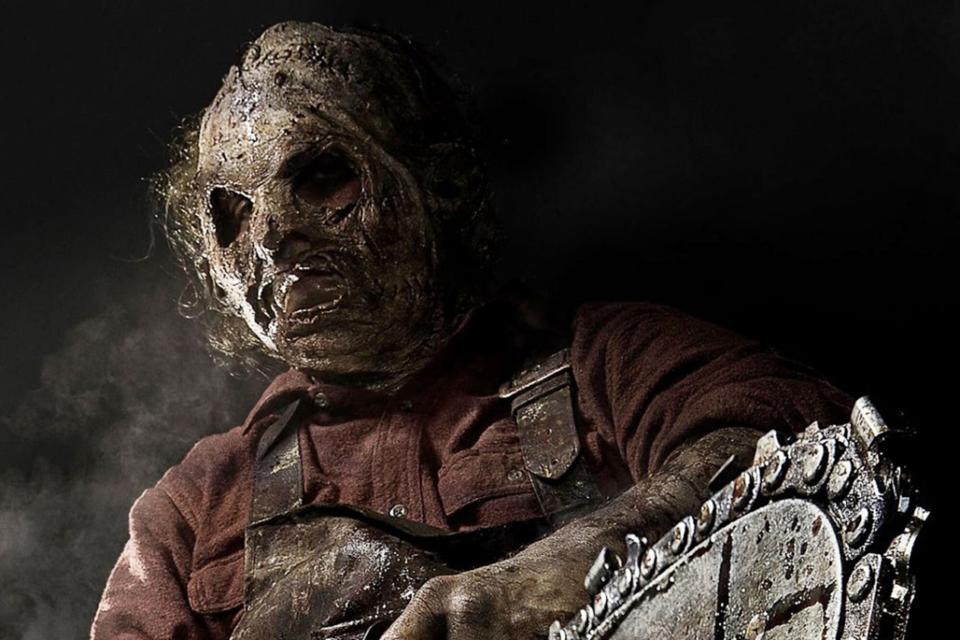
6. <i>The Texas Chainsaw Massacre</i> (2003)
A group of fun-seeking teens, headed by final-girl-to-be Erin (Jessica Biel), run across a dilapidated farmhouse and a family of psychotic cannibals in Marcus Nispel's remake.
Daniel Pearl, the cinematographer on Tobe Hooper's 1974 film, returned to shoot this remake and delivers a picture of markedly different style; the filmmaking technique here is blatantly cinematic, much less reliant on the documentary nature that the original thrived upon. That's actually quite a compelling choice, certainly not the obvious one many filmmakers would choose when reimagining a classic. Unfortunately, that's where the interest both begins and ends in this otherwise unimaginative, dreary slog that feels tremendously far removed from the original's onslaught of horror.
Instead, Nispel's sepia-toned retread feels closer to a hostage drama than it does a slasher movie. A good deal of the run time is spent with R. Lee Ermey, as the sheriff from hell, tormenting the teens at the center, while occasionally Leatherface (Andrew Bryniarski) gets a brief look-in. It's also a particularly mean-spirited enterprise, kicking off with a tasteless scene of suicide followed by extended sequences depicting the aftermath, a plot point that EW's Owen Gleiberman noted Nispel "can't seem to get enough of…his obsession with [that splattery mess] sums up the difference in tone: This is a remake that turns every kill into an opportunity for overkill.
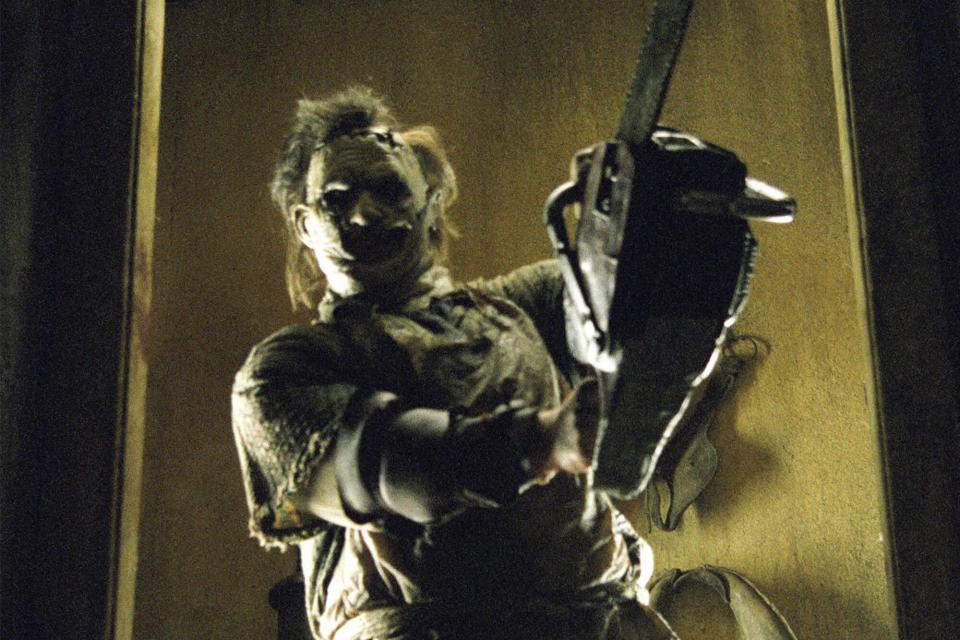
5. <i>The Texas Chainsaw Massacre: The Beginning</i> (2006)
Jonathan Liebesman's prequel to the 2003 remake follows brothers Eric (Matt Bomer) and Dean (Taylor Handley) as they road trip across the country with their girlfriends Chrissie (Jordana Brewster) and Bailey (Diora Baird) in the days before the boys are to enlist in the Vietnam War. Along the way, they run afoul of a group of bikers, which leads to a car accident that aligns their path with that of the hungry-hungry Sawyer family.
The Beginning is hard to classify, because in several ways it's one of the better Chainsaw spin-offs. It has a jaunty pace that never bogs down, and in fact keeps the movie feeling more like an EC adventure comic than most of the movies in this franchise do. Yet, it's also tremendously nihilistic and aggressively violent from start to finish, with no relief.
Liebesman's movie feels very much like two halves struggling for autonomy — the fun slasher adventure vs. the queasy-making slice of New Extremeness — and unfortunately the grim goriness outweighs in the end. If the red stuff is your primary focus, though, you could do far worse than The Beginning, which is practically a documentary on the impact a chainsaw might have on any given limb attached to human, or animal, bodies.
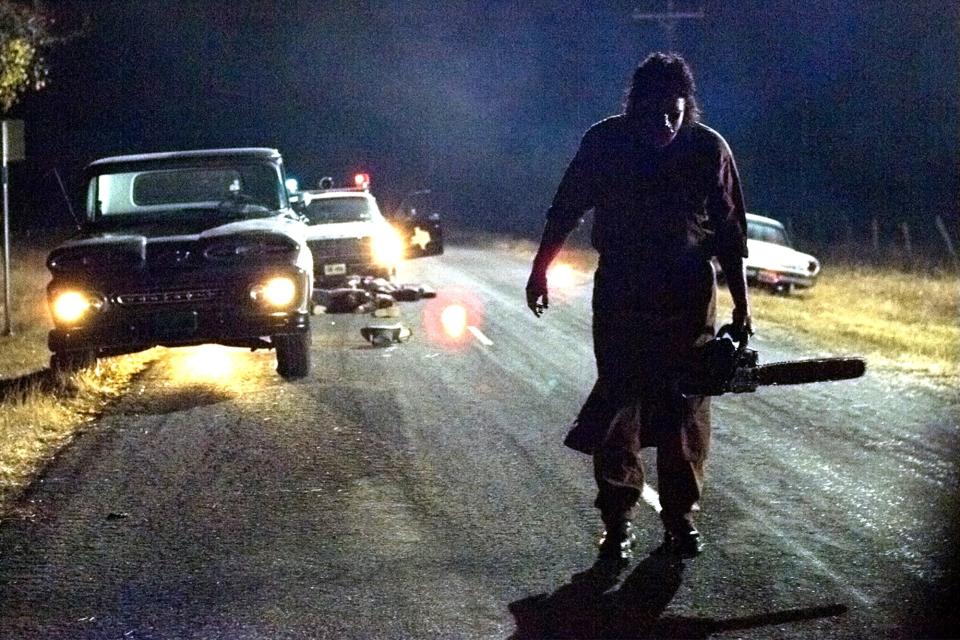
4. <i>Leatherface: Texas Chainsaw Massacre III</i> (1990)
Young road-tripping couple Ryan (William Butler) and Michelle (Kate Hodge) fall victim to both car trouble and Leatherface (R.A. Mihailoff) during one long night out on the highway in Jeff Burr's second sequel.
After TCM Part 2, New Line Cinema, with their run of Freddy Krueger films coming to an end, acquired the rights to the Chainsaw series and intended to make Leatherface the centerpiece of their next slasher franchise. Obviously that never came to be, which is a shame as it would have been a thrill to see more New Line sequels that brought the iconic slasher to the forefront.
In spite of a glossy tableau and a fun twist on the story, Leatherface never really gets going. Burr's picture is a slight 76 minutes before credits, with most of that time spent following its characters around dark woods. Part of the issue with the pacing has to do with the MPAA, which refused to release Leatherface without significant cuts. Over four minutes of gory footage was shorn from the film's negative before it made it to screens, which results in inconsistencies not just in the scenes of violence (in which some characters simply fall down and are never seen again), but also in moments of plot. Whether a product of the editing or not, Leatherface barely registers in his own story; most of the villainy is left to his brother, Ed (Viggo Mortensen, quite good, as expected), and when Leatherface does get his chainsaw properly revved, the censorship robs the movie of any impact.
By the finale, Leatherface feels a lot like a made-for-TV version of Chainsaw Massacre. It goes down smoothly, but is terribly bland and will likely be forgotten by bed time.
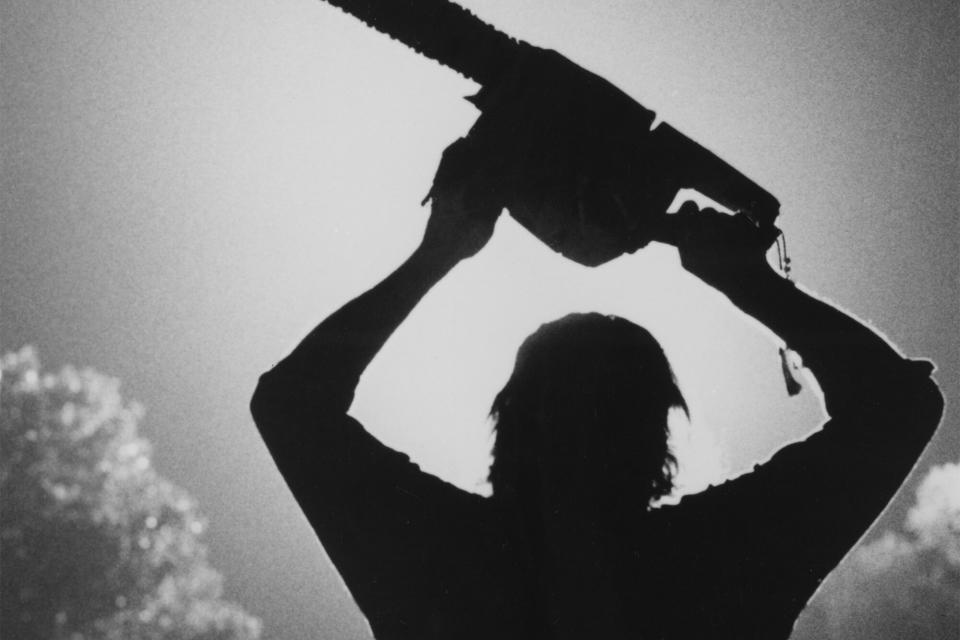
3. <i>Texas Chainsaw Massacre: The Next Generation</i> (1995)
After speeding out of their prom, Jenny (Renee Zellweger) and her friends endure a whopping two separate car accidents that leave them stranded in the middle of the woods. As they wander in search of help, they're beset upon by Vilmer Slaughter (Matthew McConaughey) and the rest of his bloodthirsty clan, which inevitably includes Leatherface (Robert Jacks) and his trusty chainsaw, in this sequel directed by Kim Henkel, the co-screenwriter of the original film.
The Next Generation is most famous (or possibly infamous) for the presence of Zellweger and McConaughey, who filmed this just before they became Hollywood breakouts. When it came time for Columbia, the film's distributor, to release The Next Generation, they did so twice: once in September 1995, in a 94-minute cut under the title Return of the Texas Chainsaw Massacre, and again in August 1997 with its current title, clocking in at 87 minutes (which is the version widely available today).
The second release was to cash in on Zellweger and McConaughey, who had hit it big in 1996 with Jerry McGuire and A Time to Kill, respectively. ("If you want to attain mega-fame, Texas Chainsaw Massacre: The Next Generation seems to be saying, this is how low you may have to stoop to get there," Owen Gleiberman asserted in his review for EW.) The film remains a curio in the franchise, a film that perhaps undeservingly has the taint of a flop.
However, The Next Generation is, in fact, quite a bit of fun; it is certainly more thoughtful and accomplished than its predecessor, 1990's Leatherface. While Henkel's sequel essentially follows the same formula as that movie — young couple(s) with car trouble break down in the woods and are stalked by Leatherface — the director brings a perverse flair to the proceedings that sets this installment nicely apart from the previous films in the series, including a cadre of high school caricatures that feel more at home in a movie like Jawbreaker than they do in a Leatherface feature. Oddly, that works to enhance the horror when it does arrive, rather than detract from it; the characters here are the most likable assortment of teens in any TCM installment.
The height of the film's subversion centers around the character of Darla (Tonie Perensky), an insurance agent and Vilmer's girlfriend, to whom torturing kids on their prom night is as much a part of the job as anything else. Her character is a refreshing change from the all-male threat of the previous films, and Perensky plays the character with a witty sense of self-unawareness. Believe it or not, Generation's peak in both entertainment and suspense is a scene in which Darla, with a gagged Jenny in her trunk, goes to pick up a couple of pizzas for dinner.
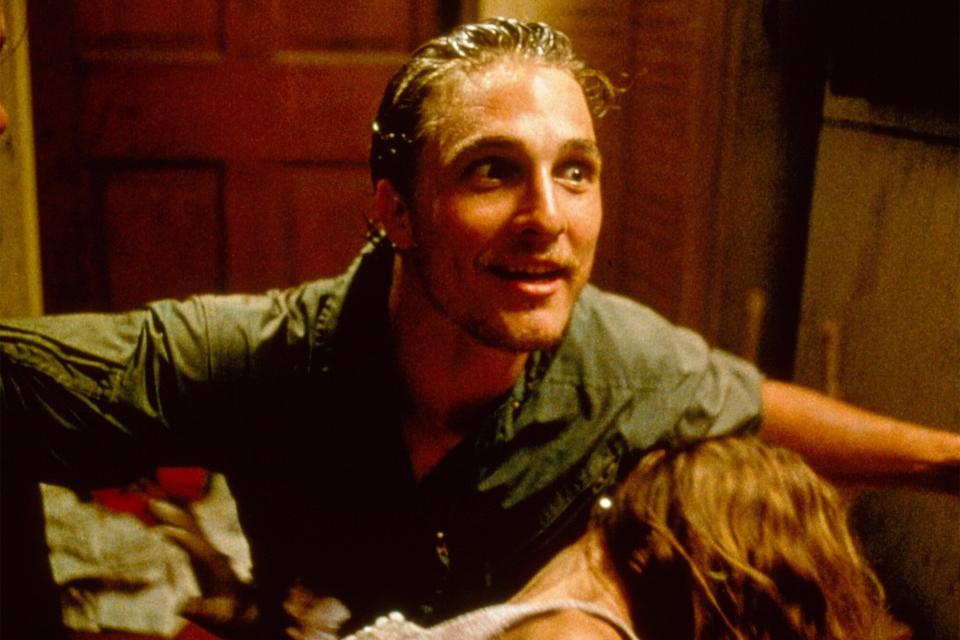
2. <i>The Texas Chainsaw Massacre Part 2</i> (1986)
Popular Texas DJ Vanita "Stretch" Brock (Caroline Williams) is kidnapped by Leatherface (Bill Johnson) and his disturbed war-veteran brother Chop Top (genre stalwart Bill Moseley) and taken to their new hideout, an abandoned theme park out in the middle of the desert. Hot on their trail is Lt. Lefty Enright (Dennis Hopper), the uncle of Sally and Franklin from the first film, who is determined to get revenge on behalf of his family.
Produced by Cannon at the height of the studio's output, Part 2 departs from the grimy realism of the first film and pursues an altogether lighter tone, albeit one still caked in skin-flaying mayhem. This decision was likely the smartest thing Hooper could have done, as the sequel has gained quite a devoted following in the years since its release. TCM Part 2 finds Hooper doing a brilliant job of blending an intensity adjacent to his original with some comic flourishes that, while certainly more broad than its predecessor, aren't out of left field. (The original Chainsaw Massacre had its own brand of humor running through it, though it was admittedly of a different texture than the humor here.)
Hooper had originally intended his film to contain even more comedy; in its early stages, it was fashioned as both a violent satire of yuppie culture and a bit of an answer film to Kevin Connor's Motel Hell (1980), which was itself a comedic variation on TCM. Inevitably, scenes of Leatherface tormenting the upwardly-mobile youth of America were left out of the film; they can be glimpsed on YouTube, and are markedly more comedic than anything in the final product. (Similarities to Motel Hell remain in the finished film, though they are thematic connections rather than explicit ones.)
The climax to this installment, which takes place on the brilliantly constructed amusement park set, takes on the frenetic energy of a film like Mad Max or The Hills Have Eyes, with Hopper in full gonzo, chainsaw-wielding, revenge-seeking mode and Williams providing a sympathetic heroine who is able to match what the psychotic clan throws at her. It's more than a worthy successor to Hooper's fearsome original, and one of the better horror pictures of the '80s.
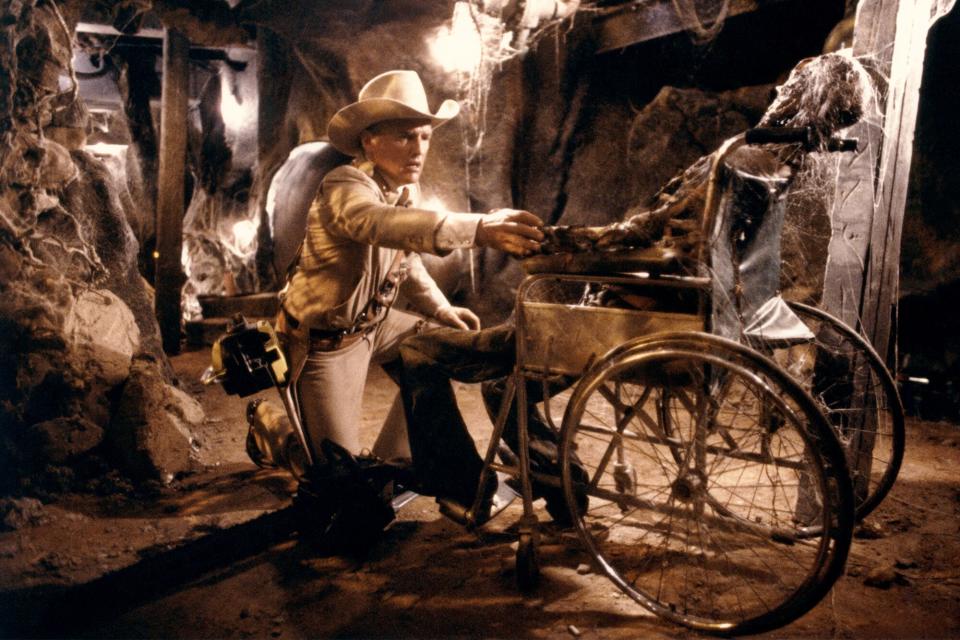
1. <i>The Texas Chain Saw Massacre</i> (1974)
Out investigating the possible robbery of their grandfather's grave, Sally Hardesty (Burns) and her brother Franklin (Paul A. Partain), along with a group of their friends, stumble upon a family of slaughterhouse workers who, after years of killing and eating animals, have turned their attention to humans. Their black sheep is Leatherface (Gunnar Hansen), a hulking figure with a chainsaw who wears the skin of his victims.
Hooper's original is often imitated but never replicated, one of the few horror movies that leaps from the screen without an ounce of artifice attached and embeds itself in your subconscious for decades to come. As an evocation of hellish descent onscreen, it rivals Apocalypse Now in its sheer commitment to the nightmare endured by its central characters. Chain Saw Massacre builds to a fever pitch of such intensity that, no matter how many times one has seen the film, it still manages to whip you up into its vortex.
TCM was crafted by Hooper as a response to the treatment of animals in slaughterhouses; the abject terror experienced by the teens in his film was intended to mirror the confusion and horror experienced by animals in an abattoir before their execution. So compelling was his own narrative, Hooper stopped eating meat for good while producing this film. (Guillermo del Toro reportedly adopted a similar tact after he watched TCM for the first time.) Indeed, PETA even ranked Massacre as one of the top 10 films that will "make you go meatless."
By and large, the experience of making the film appeared to be as arduous and pulverizing as the events depicted within. The heat oozing off the screen was only rivaled by the temperatures on set, which often topped 100 degrees each day for the entire four weeks of filming. All of the actors were similarly put through the ringer. Speaking of his process in a 2014 SXSW interview, Hooper explained, "I would separate the actors and not let them socialize. Franklin, I would advise him and he went with it…to not change his clothes[,] to get as sweaty as possible, to never have lunch with anybody else." Hooper likewise acknowledged that each of his performers had endured an injury of some magnitude during the shoot. Of Leatherface's skull-cracking introduction, the director recollected that "the hammer that was used to actually hit [Kirk actor] Bill Vail…gave him a black eye, it…knocked him down because…Gunnar Hansen had to really hit the guy…Everyone hated me by the end of the production…but I think they're all mostly resolved with that, you know, but [the tough approach to filmmaking] was necessary."
Ultimately, all of that misery went into creating one of the most enduring fright films of all time. Julia Ducournau, the mastermind behind the wondrously demented Raw (2017) and Titane (2021), once told EW, "For me, Halloween is Texas Chainsaw Massacre… This is incredibly smart, incredibly political, the cinematography is amazing. And, it's incredibly amoral, you know? It's not like you have the good guys and the bad guys. It is really… smartly done. And it's a physical experience, there is no denial about that. It's a real work of art."
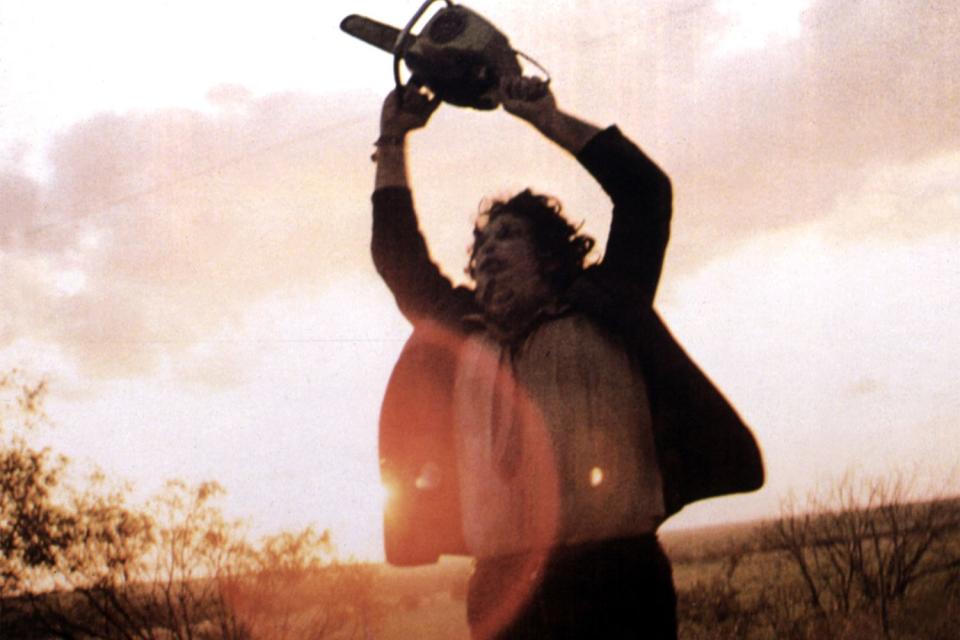
Related content:

